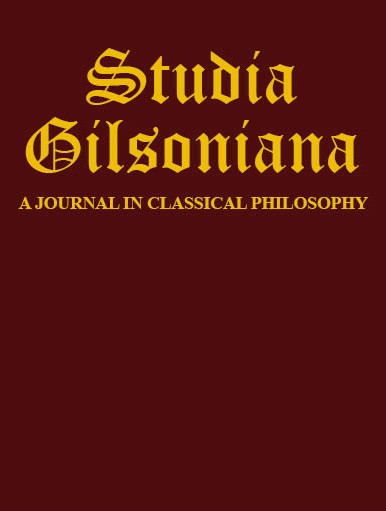The Thomistic perception of the person and human rights
The Thomistic perception of the person and human rights
Author(s): Eleni ProcopiouSubject(s): Human Rights and Humanitarian Law, Metaphysics, Philosophy of Law
Published by: International Étienne Gilson Society
Keywords: Aquinas; person; rights; natural law; justice;
Summary/Abstract: The idea of human rights is connected to the modern perception of law founded on subjectivity, in the context of which rights are authorizations of individual action versus a higher authority, resulting in a subjectivity of law. The huge importance of the thomistic perception of the person is connected with the issue of relations between the individual and society, as well as relations between law and state, since Thomas Aquinas foresaw what we call ‘rights of man’. Thus, the person, in a metaphysical context, is associated with natural order, since natural sociability forms the basis of a person’s supernatural fulfillment. Because of his social nature, the person is also a carrier of social relations and a product of his own encounter with other persons. In this way, Thomas Aquinas makes a synthesis of man per se, as part of mankind, and man as a person vis-à-vis others in the sphere of justice, consisting ‘in rendering to each one his right’. Ius is a relation of justice concerning what is right (iustum) from the point of view of the other, “to whom something is due.” Aquinas can be considered a forerunner of human rights of the modern era, as demonstrated by the issue of natural equity, the issue of unjust law and obedience and the issue of political legitimization. In this framework, “human” or “natural” rights are considered moral rights. However, in the sphere of law they are perceived only within the community and common good, by no means constituting exclusive and absolute rights but only rights corresponding with duties and obligations. The Thomistic approach expresses both the free side of man vis-à-vis the state and its structures (in the spiritual level) and the egalitarian demand of law within social relations. Furthermore, it places the sphere of law on the background of common good and common interest. The Thomistic approach of the human person is a response to the modern perception of legal subjectivity and the priority of individuals, associated with the ideology of rights and leading to a confrontation of individual and society and a division of man to natural man and citizen, a product of the antithesis between society and state.
Journal: Studia Gilsoniana
- Issue Year: 6/2017
- Issue No: 1
- Page Range: 131-152
- Page Count: 22
- Language: English

